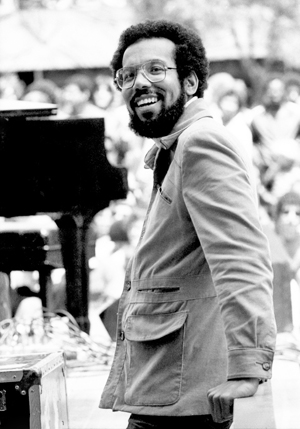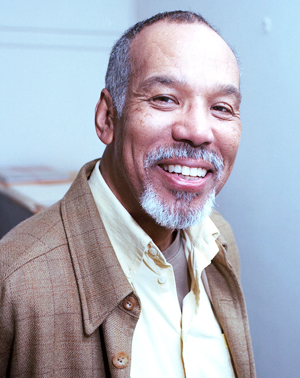
By Rev. Donald L. Perryman, Ph.D.
The Truth Contributor
A prophet is honored everywhere except in his own hometown and among his own people.
– Holy Bible (Matthew 13:57, NLT)
As a testament to Toledo’s vibrant cultural history, the city has been the birthplace of numerous exceptional black artists, musicians, intellectuals, and innovators. Yet, while these gifted individuals receive accolades from afar, they mostly remain underrecognized in their own backyard.
Bob Dietsche, in his book Tatum’s Town: The Story of Jazz in Toledo, Ohio, recounts a British journalist’s astonishment at the city’s failure to honor Art Tatum – an international jazz legend. The journalist, who was visiting Toledo to write Tatum’s biography described the city’s failure to recognize the giant in their midst as, “A fact that will eternally embarrass the city and forever mar Toledo’s reputation.” He went on to add, “If Tatum had been born in London, there would be a bust of him in the London Museum.”
This pattern of overlooking homegrown talent underscores a broader issue of local recognition that is not limited to Tatum but extends to Stanley Cowell, a jazz prodigy whose significant contributions have yet to be fully acknowledged in Toledo.
Cowell’s story, from his early life on the ‘power block” of 900 Woodland Street to his influential career in music, embodies the need for Toledo to honor its black cultural icons, ensuring their legacies are not just remembered but revered for future generations.

© Brian McMillen
www.brianmcmillenphotography.com
The Formative Years in Toledo
Stanley Cowell’s early years were shaped by a rich tapestry of influences that nurtured his prodigious musical abilities. Cowell’s father, Stanley, Sr., a prominent businessman, owned Stanley’s Hamburger Grill and built the Collingwood Motel, the first motel in the city limits of Toledo. The elder Cowell also built the Kirkwood on Telegraph Road. Cowell recounted in past interviews, “All the musicians that would come to town I would meet because in those days especially because of segregation they would stay in the black community.” This provided him with the unique opportunity to meet numerous jazz luminaries passing through Toledo, a city renowned as a mecca for jazz artists and enthusiasts.
Stanley Cowell’s path to jazz immortality took root at 962 Woodland, a neighborhood steeped in African American cultural, intellectual, professional, and activist traditions. The 900 block of Woodland was known as the “Power Block” and was teeming with pioneers like J.B. Simmons, Jr. – the first African American elected to the Toledo City Council in 1945 – and provided a rich backdrop for Cowell’s initial musical ventures. Notable neighbors included George Bush, a black pharmacist (Pocock’s Drug Store), and the esteemed Doneghy family (Joseph and Charles), further enriching the environment that shaped Cowell’s early life.
Early Musical Education and Influences
Stanley Cowell’s early musical education was a rich tapestry that intertwined rigorous formal training with Toledo’s lively jazz culture. Known as the “prize student” of piano teacher Mary Belle Shealy, who was affiliated with Warren AME Church, Cowell began his journey at Toledo’s Jessup W. Scott High School. He further honed his skills at the Oberlin Conservatory of Music, eventually earning a Master’s degree from the University of Michigan. Influenced by jazz icons like Art Tatum and grounded in classical piano, Cowell was poised to master both jazz and classical domains. His extraordinary talent was unmistakable at just 14 when a performance with the Toledo Symphony Orchestra showcased his remarkable abilities and hinted at his future achievements in music.
A Career That Transcended Boundaries
Stanley Cowell’s career was defined by its innovation, versatility, and unwavering commitment to excellence. A co-founder of Strata-East Records, his collaborations with jazz luminaries like Max Roach and Miles Davis significantly shaped the course of jazz music. These partnerships highlighted Cowell’s multifaceted talent as a composer, arranger, and pianist, renowned for his unique blend of classical techniques with jazz innovation, captivating both audiences and critics. His discography, which merges jazz with classical elements, exemplifies his extraordinary skill and forward-thinking musical approach.
Among Cowell’s most distinguished collaborations was his work with the Heath Brothers, an acclaimed jazz ensemble featuring Percy Heath on bass, Jimmy Heath on tenor saxophone, and Albert “Tootie” Heath on drums. This partnership allowed Cowell to fuse his classical expertise with his jazz fervor, enriching the group’s sound and enhancing their dynamic stage presence. His engagement with the Heath Brothers not only cemented his reputation in the jazz world but also demonstrated his adeptness in navigating intricate musical terrains.
In the early 1970s, alongside trumpeter Charles Tolliver, Cowell established Strata-East Records. This label became a haven for artists championing creative autonomy and artistic integrity. This endeavor marked a defining moment in jazz history, with Strata-East Records championing an abundance of groundbreaking albums, including Cowell’s “Musiquarium,” further solidifying his influence in the jazz domain.

Acclaim and Influence
Following his professional career, Cowell also made significant contributions as an educator, serving as a professor emeritus at Rutgers University’s Mason Gross School of the Arts, where he taught jazz piano and influenced many students.
Through his teaching, mentorship, and influence on the next generation of musicians — Cowell’s legacy is profound. Through his academic role, Cowell helped shape the careers of countless young musicians, imparting his extensive knowledge of jazz theory, performance, and history. His work in education, combined with his professional achievements, underscores his commitment to the growth and development of jazz music and its practitioners.
Honoring Stanley Cowell: A Legacy of Musical Innovation and Education
Stanley Cowell’s remarkable journey from the vibrant streets of Toledo to the global jazz stage is a testament to his unwavering dedication to music as well as his roots in the culturally-rich soil of Toledo, Ohio.
Yet, despite his acclaim and the breadth of his contributions, Cowell’s legacy within Toledo remains undercelebrated. The absence of a formal tribute to his achievements in his hometown calls for a reevaluation of how we honor our cultural icons.
By acknowledging and memorializing Cowell’s life and work, Toledo has the opportunity to not only honor a native son but also to inspire future generations to appreciate the rich musical heritage of our city.
In doing so, we can affirm Toledo’s place in jazz history and celebrate the legacy of Stanley Cowell, a true musical prophet whose influence transcends geographical boundaries.
(contact Rev. Dr. Donald Perryman at drdlperryman@centerofhopebaptist.org)
